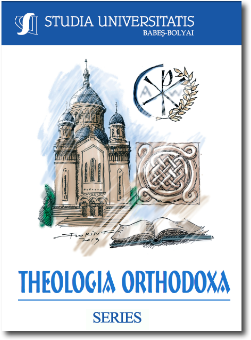THE TEACHING OF THE ENERGIES IN DE OMNIFARIA DOCTRINA OF MICHAEL PSELLOS
THE TEACHING OF THE ENERGIES IN DE OMNIFARIA DOCTRINA OF MICHAEL PSELLOS
Author(s): Georgi KaprievSubject(s): Philosophy of Middle Ages
Published by: Studia Universitatis Babes-Bolyai
Keywords: teaching of energies; essence; power; activity/energy; perichoresis; participation; causality; Michael Psellos; Nicetas from Maroneia; Gregorius Palamas; Prochorus Kydones;
Summary/Abstract: The paper gives an answer to the question if and in what way the doctrine of energies is present in De omnifaria doctrina of Michael Psellos, and compared to the background of self-evidence and even simplification of the doctrine in the twelfth century (using the example of Nicetas from Maroneia). It is mainly represented in the form of a valid element of conventional philosophy and theology. It is pointed out that the only model of this doctrine usually considered is the version promoted by Gregorius Palamas in a systematic form, forming the basic axis of his system of thought, which is to serve as the basis for the explanation of all phenomena that can be an object of philosophical and theological reflection. Psellos’ version shows some differences in comparison with this model. It is proven (using the example of Prochorus Kydones) that even in the course of the Hesychast controversy most of Palamas’ opponents do not question the doctrine. The theory of energy proves to be a philosophical instrument that is valid for all philosophers in Byzantium, regardless of the line of thought they represent. It is a specific feature of philosophy in Byzantium, which characterizes its peculiarity in a comparison with the western medieval philosophical paradigms. It is decidedly emphasized that the theory of energy does not have a clearly defined, “essential” constitution, but rather demonstrates a variety of forms of appropriation and use, so that each philosopher applies it according to the peculiarity of his own philosophy program.
Journal: Studia Universitatis Babes-Bolyai - Theologia Orthodoxa
- Issue Year: LXVI/2021
- Issue No: 1
- Page Range: 101-116
- Page Count: 16
- Language: English

